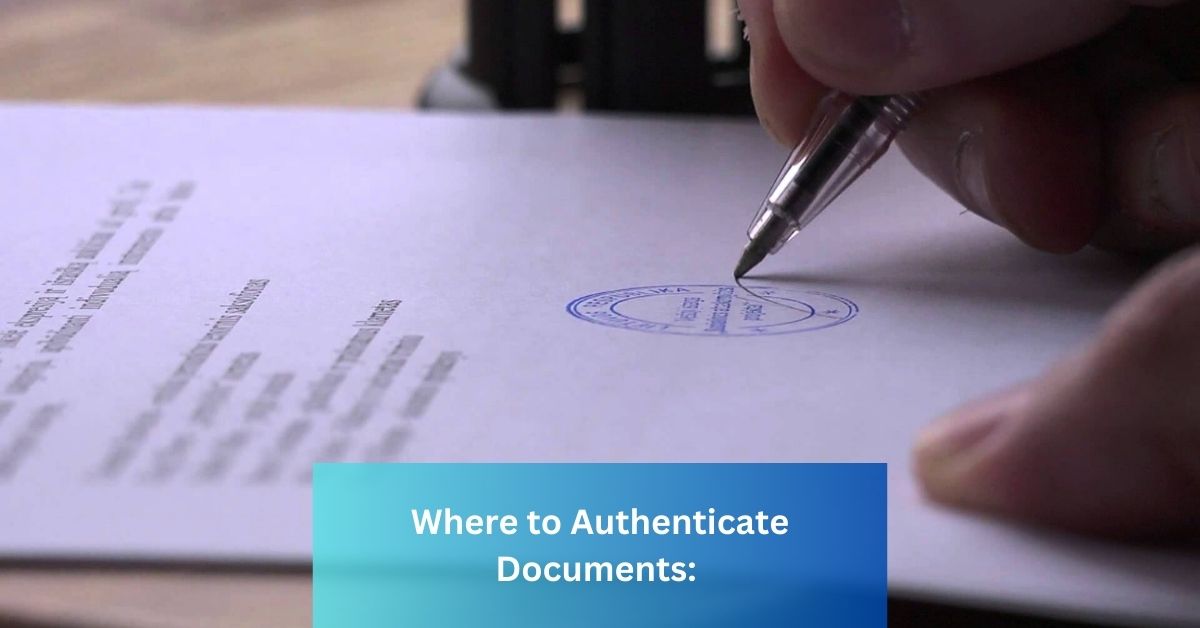The URL “https://tanfacil.net/negocios/donde-compulsar-documentos-3291.html” appears to be in Spanish. It translates to “https://tanfacil.net/businesses-where-to-certify-documents-3291.html” in English.
The link provided seems to lead to an article on TanFacil.net discussing Where to Notarize Documents” in a business .
Introduction:
In the world of business, maintaining trust and transparency is paramount. Critical documents like contracts, licenses, and financial statements often require verification to ensure their authenticity and accuracy.
This process, known as document certification, plays a vital role in safeguarding business interests and fostering smooth operations.
Purpose and Importance of Document Certification in Businesses:
Document certification serves several crucial purposes:
- Verifying Authenticity: A certified document confirms its origin and legitimacy. This is essential when dealing with official entities, foreign counterparts, or establishing business credibility.
- Preventing Fraud: Certification helps deter forgery and tampering, minimizing the risk of fraudulent activities and protecting businesses from financial losses.
- Enhancing Trust: Third-party verification bolsters trust between business partners, fostering stronger relationships and facilitating smoother transactions.
- Meeting Legal Requirements: Certain legal proceedings or international trade agreements might necessitate certified documents for official recognition.
What is Document Certification?
Document certification involves obtaining a formal confirmation from a designated authority that a presented document is a true and accurate copy of the original. This typically involves:

- Verification: The certifying entity examines the document to ensure its authenticity and compares it against the original on file.
- Attestation: A seal, signature, or official statement is affixed to the document, signifying its validity.
Why Certify Documents?
Several factors necessitate document certification in businesses:
- Business Formation: When establishing a business entity, certified copies of formation documents like Articles of Incorporation might be required for official purposes.
- Financial Reporting: Audits or loan applications may necessitate certified financial statements to confirm the business’s financial health.
- Contracts and Agreements: Certification adds an extra layer of security to crucial contracts, ensuring enforceability in case of disputes.
- International Business: Engaging in international trade often requires certified documents like certificates of origin to comply with customs regulations.
- Legal Proceedings: Court cases or other legal matters might necessitate certified copies of documents as evidence.
Types of Documents Requiring Certification https://tanfacil.net/negocios/donde-compulsar-documentos-3291.html
The specific documents requiring certification can vary depending on the situation. However, some commonly certified documents include:
- Articles of Incorporation
- Business Licenses
- Certificates of Good Standing
- Contracts and Agreements
- Financial Statements (Balance Sheets, Income Statements)
- Invoices and Receipts
- Academic Transcripts and Diplomas
- Birth Certificates and Passports (for specific purposes)
Read: Mysteries of Igagony: Exploring the Undefined
Importance of Certified Documents in Businesses https://tanfacil.net/negocios/donde-compulsar-documentos-3291.html
Certified documents hold significant value in various business scenarios:
- Building Trust: Verified documents demonstrate transparency and establish a company’s legitimacy, fostering stronger relationships with clients and partners.
- Facilitating Transactions: Certified documents can expedite approvals and simplify bureaucratic processes, ensuring smoother business operations.
- Protecting Against Fraud: Certification minimizes the risk of fraudulent activities involving forged or tampered documents, safeguarding businesses from financial losses.
- Enhancing Legal Standing: In legal disputes, certified documents serve as credible evidence, strengthening a business’s position.
Methods of Document Certification https://tanfacil.net/negocios/donde-compulsar-documentos-3291.html
There are several ways to get documents certified, each with its own advantages and limitations:
- Notary Public: A notary public, a state-appointed official, can verify your identity and witness your signature on a document, creating a certified copy.
- Government Agencies: Specific government agencies may offer document certification services for documents issued by their department (e.g., Secretary of State for business formation documents).
- Embassies and Consulates: When dealing with international business, embassies or consulates can certify documents intended for use in another country.
- Commercial Document Attestation Services: Specialized companies can handle the entire certification process, particularly for complex international requirements.
Costs and Timeframes for Certifying Documents:
The cost of document certification varies depending on the certifying entity, document type, and any additional services required. Notary public fees are generally minimal, while government agencies and commercial services might have higher charges.
Timeframes can also differ, with notary public certification being the quickest option, while international procedures may take longer.
Locations for Document Certification https://tanfacil.net/negocios/donde-compulsar-documentos-3291.html
The appropriate location for document certification depends on the document type and intended use:
- Notary Public: Locate a notary public in your area, usually through online directories or local government websites.
- Government Agencies: Contact the relevant government department that issued the original document for their certification procedures.
- Embassies and Consulates: Visit the embassy or consulate of the country where the document will be used for their specific requirements.
- Commercial Document Attestation Services: Choose a reputable service provider with experience in handling your specific needs.
Considerations When Choosing Certification Locations:
When selecting a certification entity, consider these factors:
- Authorization: Ensure the chosen entity has the legal authority to certify the specific document type.
- Turnaround Time: Consider the urgency of your needs and choose a service that meets your required timeframe.
- Cost: Compare fees from different providers to find a cost-effective solution.
- Reputation: Opt for a well-established entity with a proven track record of reliable service.
Process of Document Certification https://tanfacil.net/negocios/donde-compulsar-documentos-3291.html
The general process for document certification involves:
- Gathering Required Documents: Prepare the original document and any necessary identification materials.
- Contacting the Certifying Entity: Research the appropriate entity based on document type and intended use.
- Submitting the Documents: Present the originals and any required forms to the chosen certification provider.
- Paying the Fees: Settle the associated charges for the certification service.
- Receiving the Certified Copy: Upon verification and processing, you will receive a certified copy of the original document with the official seal or signature.
Challenges and Solutions in Document Certification:
Potential challenges can arise during the certification process:

- Time Constraints: Urgent needs might necessitate expedited services, which can come at a higher cost.
- Complex Requirements: International document certification often involves multiple steps and additional procedures.
- Lack of Awareness: Businesses might be unfamiliar with the appropriate certification procedures for specific documents.
Solutions to these challenges include:
- Planning Ahead: Initiate the certification process well in advance, especially for international requirements.
- Seeking Professional Help: Consider utilizing commercial document attestation services for complex procedures.
- Consulting Relevant Authorities: Contact the issuing agency or relevant embassy/consulate for specific guidelines.
Read: https: //spankbang .com /8rj0z/video/ kuzu+3p- Complete Guide!
Benefits of Certified Documents for Businesses:
Obtaining certified documents offers several advantages for businesses:
- Streamlined Operations: Verified documents can expedite approvals and simplify bureaucratic processes, saving time and resources.
- Enhanced Credibility: Certification demonstrates legitimacy and fosters trust with clients, partners, and potential investors.
- Mitigated Risks: Certified documents help prevent fraud and protect businesses from financial losses associated with forged documents.
- Stronger Legal Standing: In legal matters, certified copies serve as credible evidence, strengthening a business’s position.
Tips for Certifying Documents https://tanfacil.net/negocios/donde-compulsar-documentos-3291.html
Here are some helpful tips for a smooth document certification experience:
- Research Requirements: Thoroughly understand the specific certification procedures needed for your situation.
- Prepare Documents: Ensure all required documents are readily available and in good condition.
- Choose the Right Entity: Select a reputable and authorized certification provider based on your document type and needs.
- Plan Ahead: Factor in processing times and potential delays, especially for international certifications.
- Keep Copies: Maintain copies of both the original and certified documents for future reference.
Conclusion:
Document certification https://tanfacil.net/negocios/donde-compulsar-documentos-3291.html plays a crucial role in ensuring the authenticity and validity of critical documents in the business world.
By understanding the purpose, processes, and available options, businesses can effectively navigate this essential procedure. Choosing the right certification method and provider fosters trust, safeguards against fraud, and streamlines critical business operations.
Remember, seeking professional guidance when dealing with complex international requirements can ensure a smooth and efficient certification process.
FAQ’s:
1. Do I always need a notary public to certify documents?
Not always. While notaries are common, government agencies and embassies can certify specific documents they issue.
2. Can I certify documents online?
Generally, no. Physical verification of the original document is crucial, making online certification impractical.
3. How long does document certification take?
Turnaround times vary. Notaries are often the quickest, while international procedures involving embassies can take weeks.
4. What happens if my document is damaged?
Replacement might be necessary. Contact the issuing agency for specific procedures regarding damaged documents requiring certification.
5. Is there a universal certification process?
No. Requirements differ based on document type, intended use, and certifying entity. Research specific procedures beforehand.
6. What are the consequences of using an uncertified document?
Legal recognition might be denied, causing delays or impacting business operations. In some cases, penalties or legal issues could arise.
7. Are there any alternatives to document certification?
For specific situations, some entities might accept apostilles (special certifications issued by government authorities) instead of traditional document certification.
